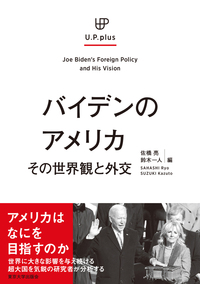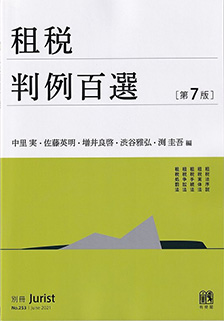Other Publications
Women’s Education under the rule of Taliban [in Burmese]
AbstractThis article points out the reaction and management of Taliban on the education of women, which is addressed as just reason to keep their position and just a promise to let the international community know that they are trying to take care of the women’s rights issue.
Bad Debt Losses and Debt Relief: Developments since the Supreme Court Decision in the Case of Industrial Bank of Japan [in Japanese]
AbstractThe article examined examples regarding whether bad debt losses are allowed as deductible expenses under the Corporate Tax Law. Referring to court precedents after the Supreme Court ruling in the case of Industrial Bank of Japan and guidance by the National Tax Agency, the article explained the circumstances on the creditor's side regarding recoverability of debts, special liquidation procedures in debt waiver, and judgments regarding the applicability of charitable deductions.
The use of nuclear weapons is unthinkable under normal circumstances, but… Interview with Prof. Nobumasa Akiyama, Hitotsubashi University [in Japanese]
AbstractProf. Akiyama talks about the possibility of the use of nuclear weapons in the Russian invasion of Ukraine and other issues.
Silent Strike [in Burmese]
AbstractThis article is mainly about the silent strike which was staged by thousands of people across Myanmar to continue with anti-coup resistance. As a nationwide silent strike, the latest act of resistance against the military became the loudest shout of Myanmar people.
TPNW, Iran…Professor AKIYAMA Nobumasa Explains the focus of NPT Review Conference [in Japanese]
AbstractThe Treaty on the Non-Proliferation of Nuclear Weapons (NPT) Review Conference will be held from January 4, 2022. In this article, Professor AKIYAMA Nobumasa, as an interviewee, explains the focus of the NPT Review Conference, analyzes the current status of nuclear disarmament and where to find clues to resolve the division.
What does the Underscoring of Democracy Indicate? [in Japanese]
AbstractProf. Ichihara analyzes the problems inherent in the Biden administration's shift to a focus on democracy as U.S. international power is reduced. The article addresses the problems revealed in the Biden administration's "foreign policy for the middle class," probability for the democratic agenda to be politicized, and the deterioration of credibility brought about by the withdrawal of U.S. troops from Afghanistan, noting the importance of the Indo-Pacific region regarding democracy advocacy as well.
Judgment of the Tokyo High Court (Jul. 19, 2013) Fair Treatment Standards – The Bic Camera Case [in Japanese]
AbstractAs a decision from the perspective specific to the Corporate Tax Law, this article addresses the significance of the ruling that denied the applicability of the fair treatment standard for the treatment based on the Practical Guideline for Real Estate Liquidity.
John Mearsheimer on Why the West is principally responsible for the Ukrainian crisis [in Burmese]
AbstractThis is a Myanmarese translation of original English article,“John Mearsheimer on Why the West is principally responsible for the Ukrainian crisis”published in The Economist.
Reviewing the Role of Nuclear Weapons: Akiyama Nobumasa, Professor, Hitotsubashi University [Viewpoint: The Ukraine Crisis] [in Japanese]
AbstractRather than rushing to discuss "nuclear sharing" in the midst of the ongoing crisis in Ukraine, it is necessary to objectively analyze the risks and roles of nuclear weapons and their limitations, and then to discuss the position of nuclear weapons from the perspective of national security in a cool-headed manner.
Judgment of the Supreme Court (Dec. 24, 2004) The Meaning of Bad Debts – The Case of Industrial Bank of Japan [in Japanese]
AbstractIn recognizing bad debts, regarding whether creditors' unique circumstances and economic conditions can be considered or not, this article addresses the case of Industrial Bank of Japan, which is significant to clarify specific judgment structure.








